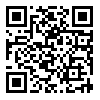Volume 17, Issue 2 And 3 (12-2003)
JMDP 2003, 17(2 And 3): 14-25 |
Back to browse issues page
Download citation:
BibTeX | RIS | EndNote | Medlars | ProCite | Reference Manager | RefWorks
Send citation to:



BibTeX | RIS | EndNote | Medlars | ProCite | Reference Manager | RefWorks
Send citation to:
Hamidizadeh M. Survey of Methods to Attain Expert Manpower. JMDP 2003; 17 (2 and 3) :14-25
URL: http://jmdp.ir/article-1-200-en.html
URL: http://jmdp.ir/article-1-200-en.html
, m-hamidizadeh@cc.sbu.ac.ir
Abstract: (19515 Views)
Foundations of creativity and innovation will be strengthened in the higher education sector only when approaches to settling in the issue of manpower are identified and geared toward appropriate behaviors.
The present article studies the existing ways to solve the problem using four different approaches (sentimental, emotional, logical, and perceptual)and 32 relevant structures to come up with a comparative evaluation of how these four approaches affect creativity and innovation. There are, theree research questions on the approach, ratio of advantages, and top and bottom ranges of the study. There is a major hypothesis on the impacts of the approaches and three minor hypotheses on the comparative effects the approaches have on creativity and innovation.
Eighty eight university faculty members were randomly selected for this descriptive-scientific-comparative study. The adjusted and standardized questionnaire "Measuring the Hellriegel & Colleagues Approaches" was used for data collection. Data analysis and hypothesis testing offered prospects of the current situation and future developments. The study proved that the four approaches work differently to materialize creativity and innovation and that the perceptual approach is more effective than the other three. Currently, 20.5 percent use the perceptual approach, while 31.2 percent use the emotional approach, 26.7 percent utilize the logical approach, and 21.6 percent use the sentimental approach.
Type of Study: Research |
Subject:
Public Administration
Received: Jan 10 2012 | Accepted: Nov 19 2014 | ePublished: Nov 19 2014
Received: Jan 10 2012 | Accepted: Nov 19 2014 | ePublished: Nov 19 2014
| Rights and permissions | |
 |
This work is licensed under a Creative Commons Attribution 4.0 International License. |







